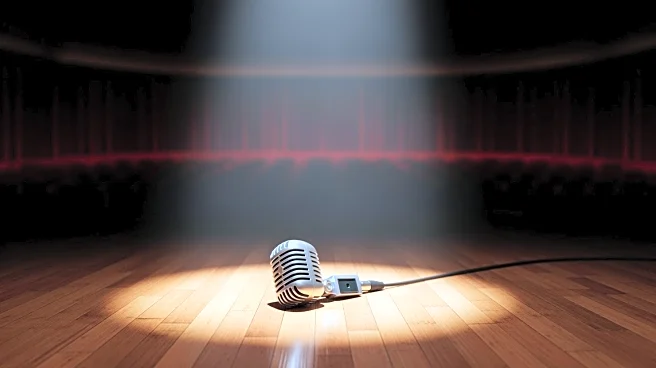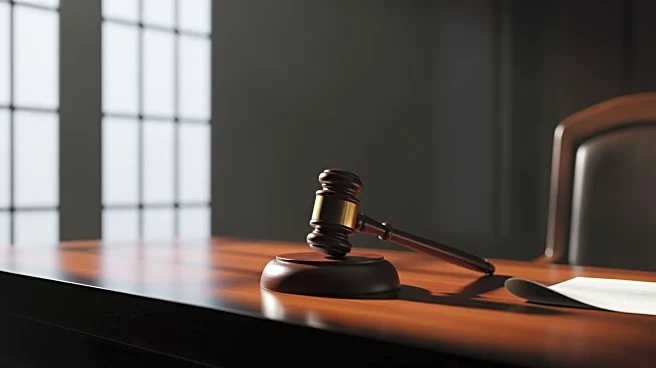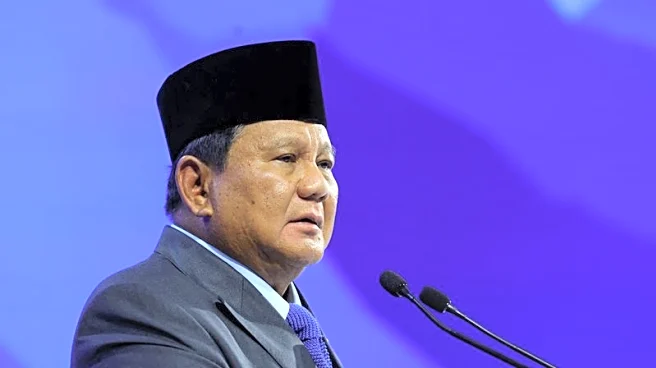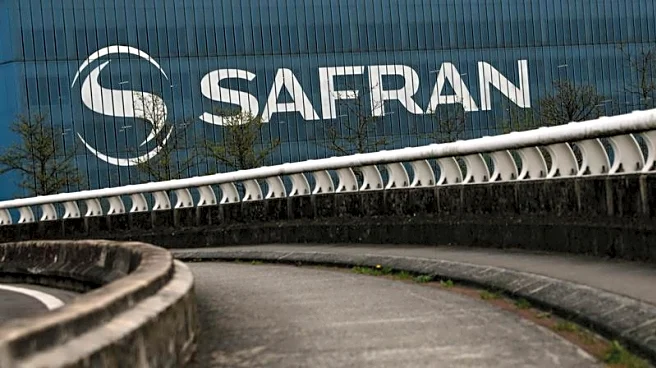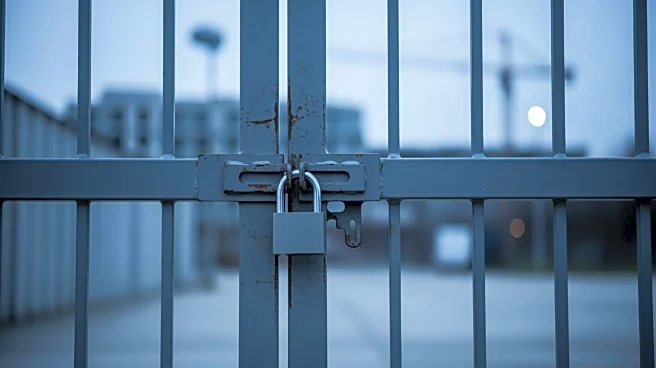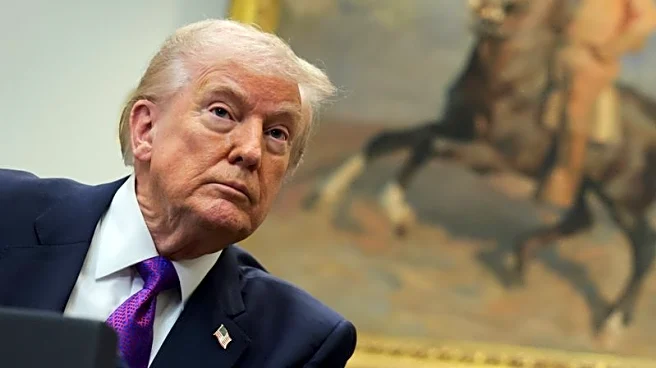What's Happening?
On a recent episode of 'The View,' co-host Whoopi Goldberg dismissed a request from fellow co-host Sunny Hostin to clarify a joke she made about President Trump. The incident occurred during a discussion about Trump's recent interview on '60 Minutes,'
where he addressed the pardon of Changpeng 'CZ' Zhao, the founder of Binance. Hostin highlighted Trump's remarks, noting his claim of ignorance regarding the pardon. Goldberg joked that Trump used an autopen to sign the pardon, prompting Hostin to pass her a note asking for clarification. Goldberg tore up the note on air, expressing frustration over the need to clarify what she considered a joke. She emphasized the difficulty of conveying nuance in her role, particularly when making jokes.
Why It's Important?
This incident underscores the ongoing political tensions and the challenges of conveying humor in a politically charged environment. Goldberg's reaction highlights the broader issue of how public figures navigate the fine line between humor and misinformation, especially in a polarized media landscape. The exchange also reflects the scrutiny faced by media personalities when discussing political figures like President Trump. The situation illustrates the complexities of live television, where offhand remarks can quickly become points of contention, impacting public perception and discourse.
What's Next?
The incident may prompt further discussions among 'The View' co-hosts about how to handle politically sensitive topics and the role of humor in their commentary. It could also lead to increased scrutiny of the show's content by viewers and media critics, potentially influencing how the hosts approach future discussions involving political figures. The show's producers might consider implementing clearer guidelines for addressing controversial topics to prevent similar misunderstandings.
Beyond the Headlines
The episode highlights the broader cultural challenge of interpreting humor in the context of political discourse. As media consumers become more polarized, the ability to discern jokes from serious commentary becomes crucial. This incident may contribute to ongoing debates about media responsibility and the role of entertainment in shaping public opinion. It also raises questions about the impact of live television on political narratives and the potential for misinterpretation in a fast-paced media environment.


